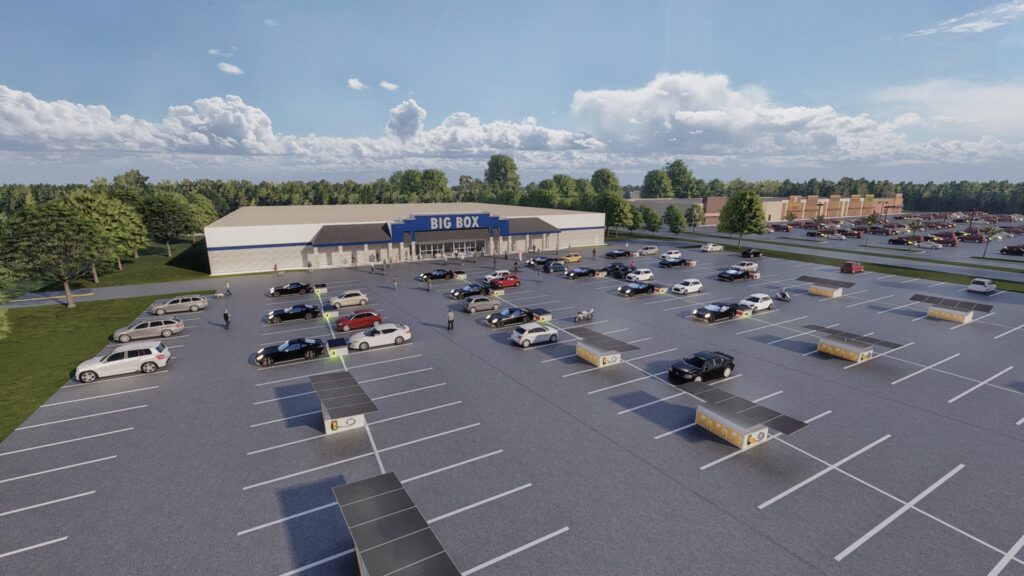PowerHouse: Success Story
Awardee – FORGE Supply Chain Disruption Grant

According to solar power startup Pew Research, 46% of US homeowners are actively considering solar, but only 6% have done so. One barrier is not so much the cost, but the fact that until now, panels had to be permanently installed. Many homeowners are hesitant to disturb the integrity of their roof or install a new one to enable solar panel installation. Others want to avoid additional up-front expenses in a home they plan on leaving in a few years. PowerHouse founders Joey Fiore, Miguel Trindade Deramo, Armine Nalbandian and Sam Fiore wondered, “Instead of asking consumers to buy an expensive fixed asset, what if we provide mobile “solar in a box” technology instead?”
PowerHouse solar units, built on a trailer platform, are compact and transportable. Home or business owners can deploy them manually or automatically, then retract when not in use, or when harsh weather threatens. Programmable and linkable, PowerHouse solar units provide the optimal amount of onsite power. Their sleek modern design can hold programmable ads, display metrics of the solar power they generate, or remain a discreet, aesthetically pleasing box. Consumers can choose the exterior design to fit into their decor.


The COVID pandemic affected brick-and-mortar stores and restaurants, already undercut by the rise of online retailers. What’s left? Swaths of empty parking lots, topped by black asphalt exude heat and amplify global warming. Why not convert underused parking spots into a clean energy resource? Add to that the bonus of garnering net metering credits, and the flexibility to move the units from property to property, and it’s a winning formula for consumers and the environment. The consumer market includes renters who yearn for solar, owners reluctant to invest in a shorter-term property, secondary homeowners, and “environmentally competitive” consumers who simply must have the latest smart tools. PowerHouse foresees that solar power will become a valuable possession that moves with you.
Mobile power sources present critical solutions during natural disasters as well. Transportable solar energy could revolutionize the deployment of humanitarian assistance, military camps, or mobile medical clinics. For non-emergencies, they could provide simple agility for any touring entity.
PowerHouse needed a FORGE Supply Chain Disruption Grant for a fundamental reason — volume. When commercial solar panels were in short supply during the pandemic, even small quantities were unavailable or unaffordable. The FORGE grant allowed PowerHouse to buy a full pallet at an affordable price to maintain inventory. Joey Fiore describes FORGE’s support as they moved into Minimum Viable Production (MVP) status:
“PowerHouse is a huge fan of FORGE development workshops and webinars. Not only is the content phenomenal, but the presenters and attendees in the FORGE startup Ecosystem are knowledgeable and helpful. An engineering firm’s partner referral and connections to local manufacturers have helped direct our growth. The FORGE Product Development Grant is valuable, but their Ecosystem is the gift that keeps on giving.”
